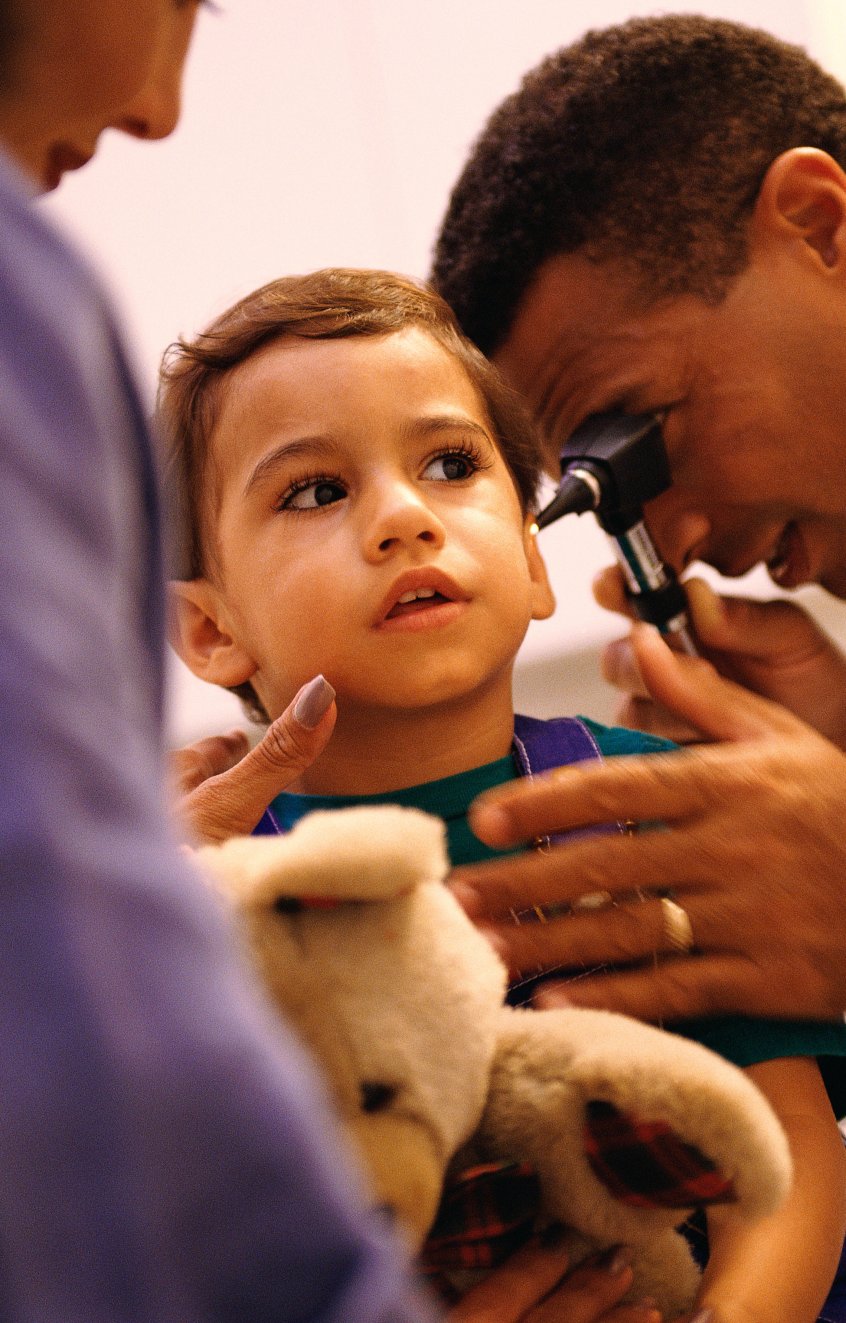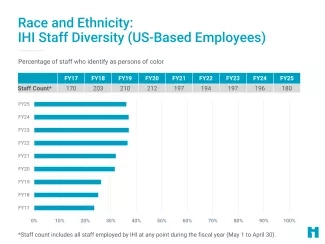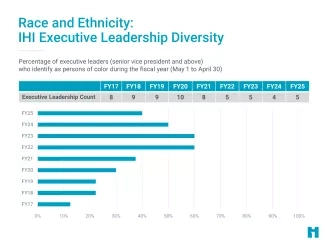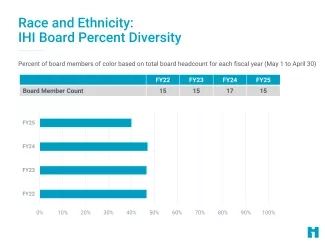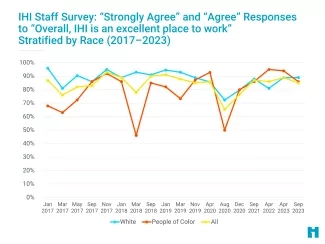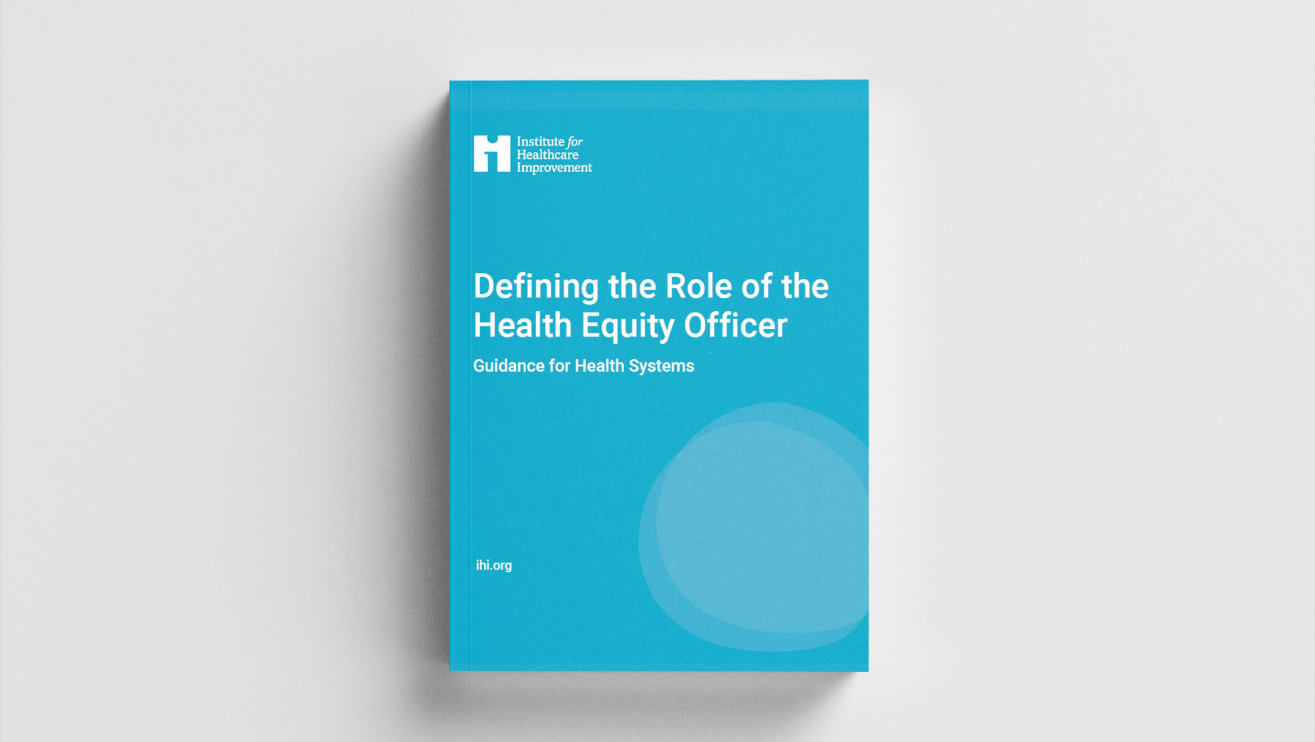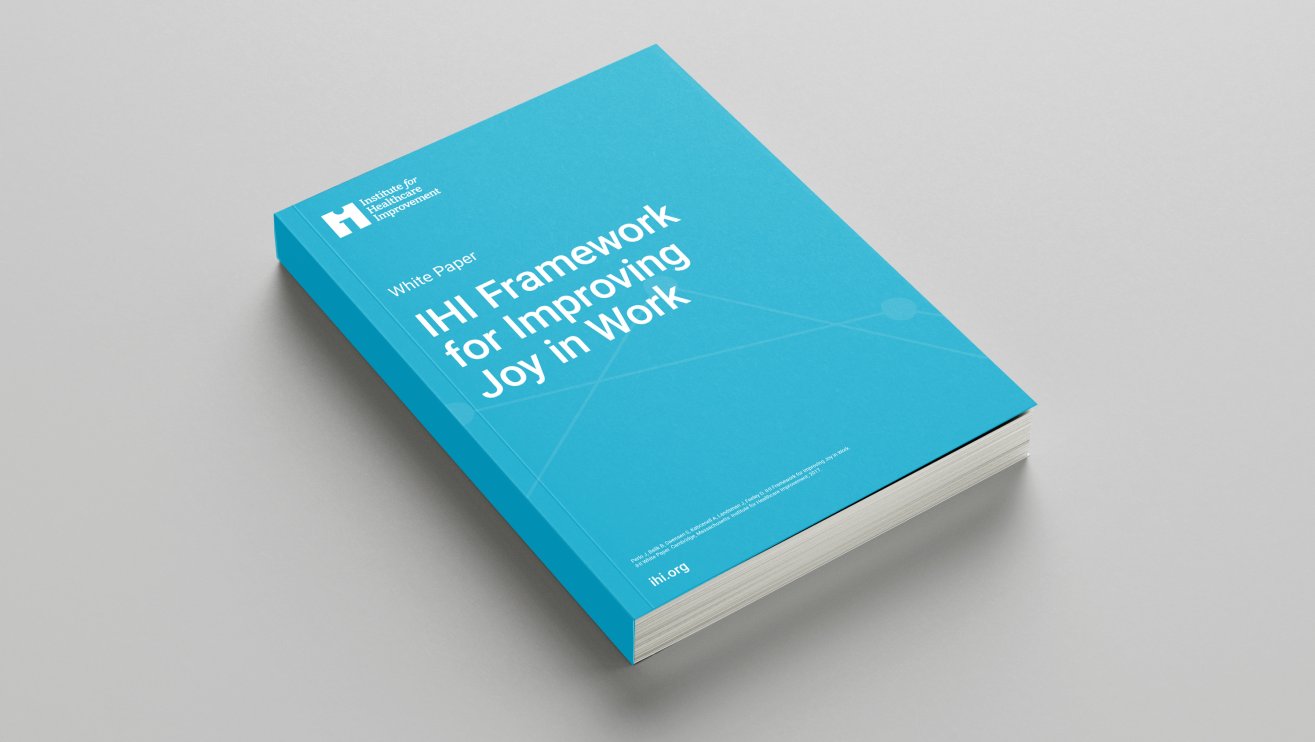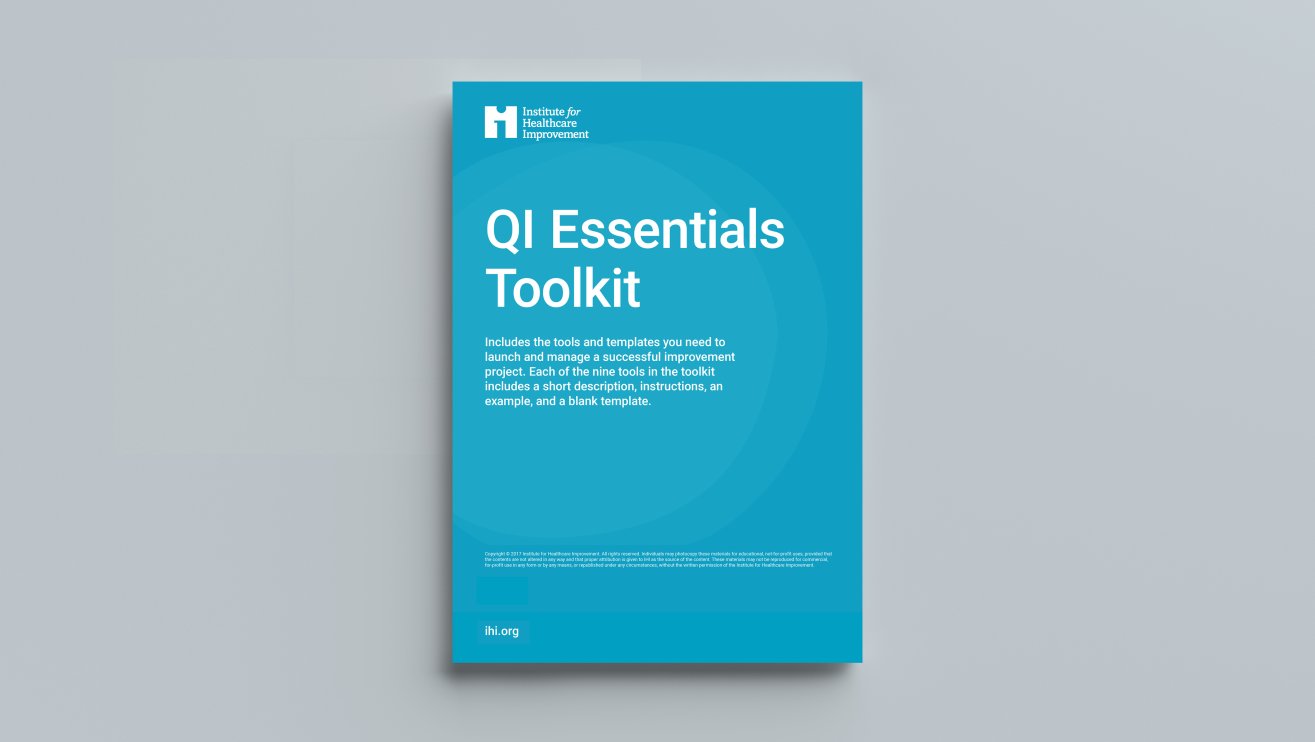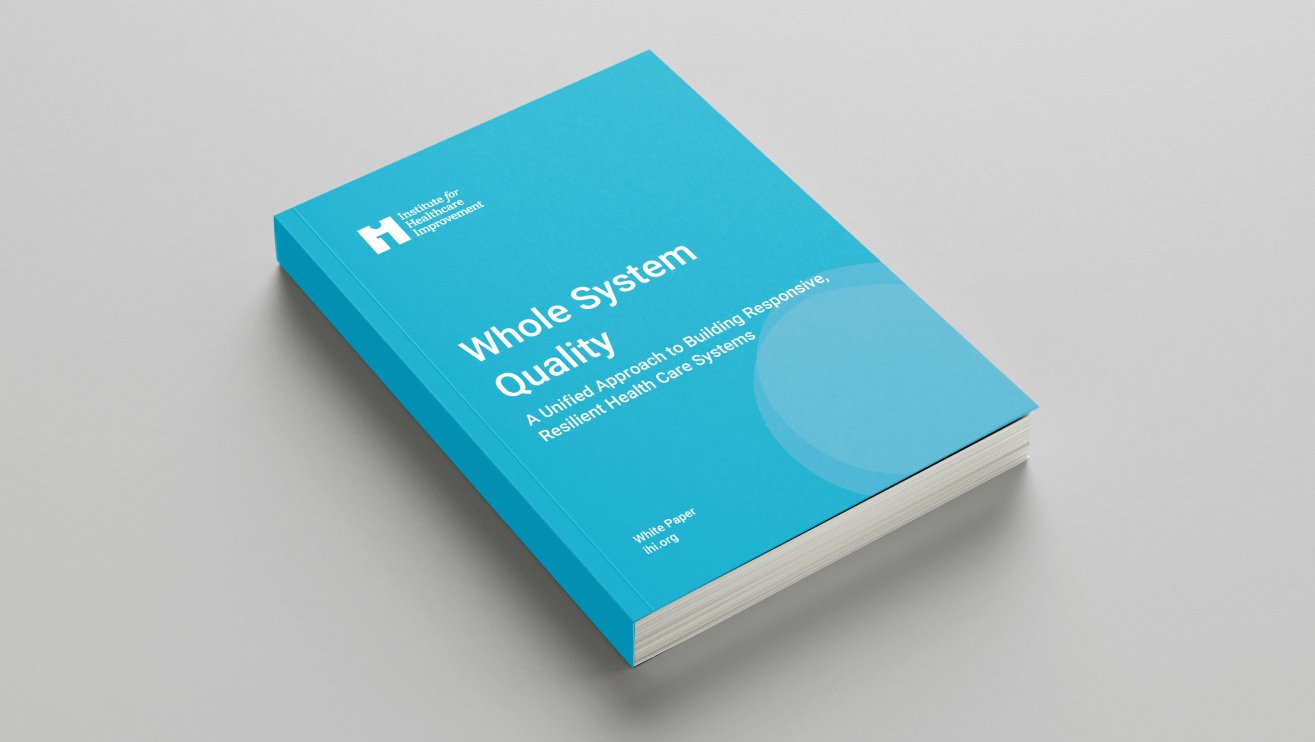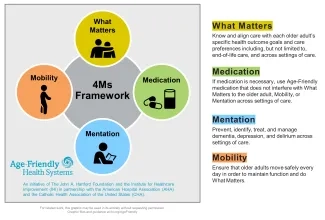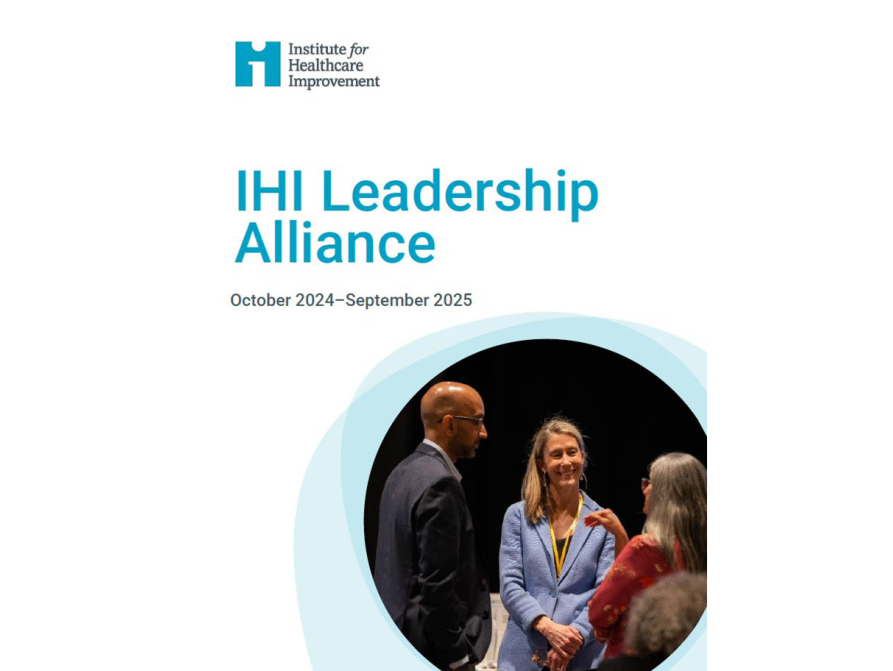History
History
Founded in 1991
The Institute for Healthcare Improvement (IHI) was officially founded in 1991, but our work began in the late 1980s as part of the National Demonstration Project on Quality Improvement in Health Care, led by Donald Berwick, MD, MPP, and a group of visionary individuals committed to redesigning health care into a system without errors, waste, delays, and unsustainable costs. Since then, we’ve grown from an initial collection of grant-supported programs to a self-sustaining organization with worldwide influence.
Now, with more than 30 years of experience on which to build, IHI has evolved to meet current and future health care challenges. Three decades of teaching, coaching, convening, and caring — learning what works, and what we can do better. While our programs, projects, and priorities have changed with the times, we remain steadfastly committed to our mission to improve health and health care worldwide.
We hope to one day reach a place where health care doesn't need improving. Until that time comes, we look forward to another 30 years of making it better, with courage, love, equity, and trust at the center of all that we do.
IHI's Work Is Grounded in Science
Science of Improvement
IHI takes a unique approach, based on the science of improvement, to working with individuals, teams, leaders, organizations, systems, states, regions, and countries to improve quality, including safety, equity, and value in health and health care. The science of improvement traces back to W. Edwards Deming, who taught that by adhering to certain principles of management, organizations can increase quality and simultaneously reduce costs.
The science of improvement is an applied science that includes:
The interaction of systems thinking, understanding variation, the theory of knowledge, and the psychology of change that are applied to improve the performance of processes, products, systems, services, organizations, and communities. The proper application of this science requires integration of a set of improvement methods and tools with knowledge of subject matter to develop, test, implement, spread, and scale up changes that lead to improvement.1
Essential in this definition of the science of improvement are four elements:2
- Appreciation for a system: A focus on how the parts of a process relate to one another to create a system with a specific aim.
- Understanding variation: A distinction between variation that is an inherent part of the process and variation that is not typically part of the process or cause system.
- Theory of knowledge: An appreciation for the need for theory to make predictions to incorporate the scientific method in improvement.
- Psychology: Understanding how the interpersonal and social structures impact performance of a system or process.
These four elements are based on what Deming referred to as the System of Profound Knowledge.3 The System of Profound Knowledge provides an outside view – a lens – that serves as a map of theory to understand the organizations and contexts in which we work. Deming emphasized that it is the interaction of the four elements with each other, and with subject matter knowledge, that produce insights that lead to improvement. The System of Profound Knowledge is depicted below.
Deming’s System of Profound Knowledge
Applying Deming’s Theory of Profound Knowledge, Associates for Process Improvement created the Model for Improvement as a simple, effective tool for bringing about positive change. IHI uses the Model for Improvement as the foundational method for all its improvement efforts.
The science of improvement and the Model for Improvement provide the scientific basis that IHI uses to drive innovation, testing in the field, and spread and scale up to generate and disseminate learning about what changes, in which contexts, produce the improvements we seek with our customers, partners, and funders. As part of our approach, we seek to build improvement capability with those we work so that they also may apply the science of improvement in our work together and long after our work together concludes.
Whole System Quality
Since 2021, IHI has more explicitly drawn from works originating with Joseph M. Juran to articulate a management structure and leadership practices necessary to plan for, control, maintain, and improve quality. Whole System Quality: A Unified Approach to Building Responsive, Resilient Health Care Systems outlines a more holistic approach to quality management — whole system quality — that enables organizations to close the gap between the quality that customers are currently receiving and the quality that they could be receiving by integrating quality planning, quality control, and quality improvement activities across multiple levels of the system.
References
1. Adapted from Associates in Process Improvement (apiweb.org).
2. Perla RJ, Provost LP, Parry GJ. Seven propositions of the science of improvement: Exploring foundations. Quality Management in Health Care. 2013;22(3):170-186.
3. For more on the System of Profound Knowledge:
- Deming WE. The New Economics: For Industry, Government, Education (2nd edition). Cambridge, MA: Massachusetts Institute of Technology Center for Advanced Engineering Study; 1994: Chapter 4.
- Berwick DM. The science of improvement. JAMA. 2008 Mar 12;299(10):1182-1184.
- Langley GJ, et al. The Improvement Guide: A Practical Approach to Enhancing Organizational Performance (2nd edition). San Francisco: Jossey-Bass; 2009: Chapter 4.
